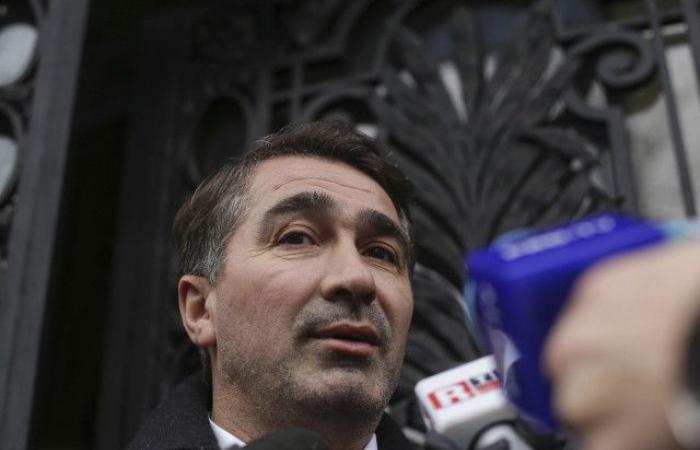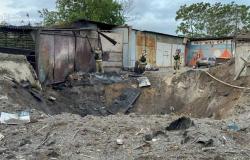
Embed
Romania, harshly criticized by the US: It tolerates rape, domestic violence and high-level corruption
Two Romanian women receive 100,000 euros in compensation after their sister died in Italy
A priest wants to send abused girls to prison
Cherecheș is on its way to Romania
Cătălin Cherecheș’s father-in-law says he will wait for him at the airport
Why extraditing the Tate brothers would be difficult now
Swarms of bees, pastrami of sheep, thermal plants, polenta – bribes received by the police
Sosoacă defies the rules only in Romania. Alerted by the carabinieri in Italy, the senator gave in
Collapsed construction site in Italy. Romanians are also among the victims
According to a report filed by Arsene’s lawyers to prevent his extradition from Romania, the former local baron seems to want to copy the “Năstase method” to escape the execution of the sentence in Romania, citing suicide attempts.
In the report, Arsene is described as a “sensitive”, shy person who doesn’t feel like dancing or going to parties because of his prison sentence: “He doesn’t trust others and harbors resentment towards them because of how he was treated unjust. His sensitivity makes him easily hurt.
Ionel also recounts the experience of being attacked, influenced and threatened by others. (…)He is shy and easily embarrassed in interpersonal situations. Experience new situations with apprehension and avoid contact with people. He has a strong aversion to group activities, such as parties, dancing and social entertainment, precisely because of the considerable difficulties in coming into contact with other people.”
He also mentions a state of discomfort: “Ionel experiences a heightened state of subjective discomfort, which essentially derives from a lack of confidence in his own abilities to cope with the emotional stress he is subjected to”.
In a dialogue with the psychologist, Arsene complains that he no longer has the necessary mood to go to the gym and doesn’t feel like going to the restaurant anymore: “… Before I wanted to live, I went to the gym, I was active … he says that everything is unfair, what is happening to him and that he also feels scared … of the situation of being sent back to Romania and not staying here close to his relatives in Italy … … because he has no one left in Romania and all his loved ones are here … he has been living in Italy for 5 years and now his life is here next to the family he has here…”. “The whole situation as a whole scared me … for example, I couldn’t do sports anymore, I didn’t feel like living anymore … I didn’t go to restaurants anymore…”.
Arsene says he is politically persecuted in Romania
Arsene further claims that he is politically persecuted: “… I have more faith in the Italian judicial system … I have been affected a lot by the abuse I have suffered and the persecution … I want to stay here in Italy even if I have to to receive the conviction here in Italy … just the thought of returning to Romania blocks me mentally …”.
Arsene also complains about the steps taken by the Ministry of Justice for his extradition: “I am a man in a situation with serious health problems… this coming and going… it terrified me… this pressure so great that I will be repatriated to my country was done in such an exaggerated way that it scared me so much that I felt terrified…”. “Because I see that Romanian justice was putting so much pressure and the abusive system put this strong pressure, it even reached here in Italy and they insisted in this strong way … obviously I was not in a good state”.
Arsene also admits that he put pressure on the Police in 2018 and presents this as normal: “the police station was 100 meters from his house … he was placed in a state of detention in a cell together with two criminals. .. one of the two had committed murder, killed his mother … the other had attacked his son with a knife … he felt horrified when he saw himself in a cell with people who had committed such serious crimes .. .even though there were 4 other free cells, why didn’t they give him an empty one? … again to create this fear … I called the chief of police, whom I even knew as a high official, and asked him why I can’t sit in an empty cell.”
A psychiatric examination presented in the report shows, however, that Arsene has no feelings of innocence and assigns “value and meaning to his own existence no matter how harshly it has been put to the test”: “the person undergoing evaluation still manages to assign a value and meaning to his own existence however harshly it was put to the test. No significant feelings of guilt or profound declines in self-esteem are identified. He proves to be determined in his intention to overcome this difficult existential moment, and although he feels fear if not terror for what he suffered in Romania (which he fears could happen again), he states that he has faith in the Italian judicial system”.
“The language is, as a whole, well articulated and expressive from the point of view of concepts: there are no delays in waiting times for answers, the tone of the voice is sometimes subdued and even, but there are no hesitations in the fluidity of speech and/or interruptions during thinking.”(…) “Attentive, oriented in conventional temporal-spatial coordinates, neat in hygiene and clothing, available for discussions in which he participates spontaneously and with an appropriate level of cooperation.”
The file also specifies that: “On the occasion of admission to the Emergency Department of the Policlinica Umberto I University Hospital in Rome, following the psychiatric evaluation, the discharge diagnosis was “Inappropriate ingestion of drugs in a mood disorder not otherwise specified” and did not no acute psychiatric condition has been detected so that hospitalization in the Psychiatric Service for diagnosis and treatment is considered necessary”.
The judges in Italy postponed the extradition precisely so that the psychiatric examination could be done after they decided that Ionel Arsene should be sent to Romania. The other day, the Minister of Justice, Alina Gorghiu, said that Baron PSD is close to being sent to the country.
Ionel Arsene has a sentence of 6 years and 8 months, for committing two crimes of influence peddling.
Publisher: CLB
Download the Digi24 app and find out the most important news of the day





